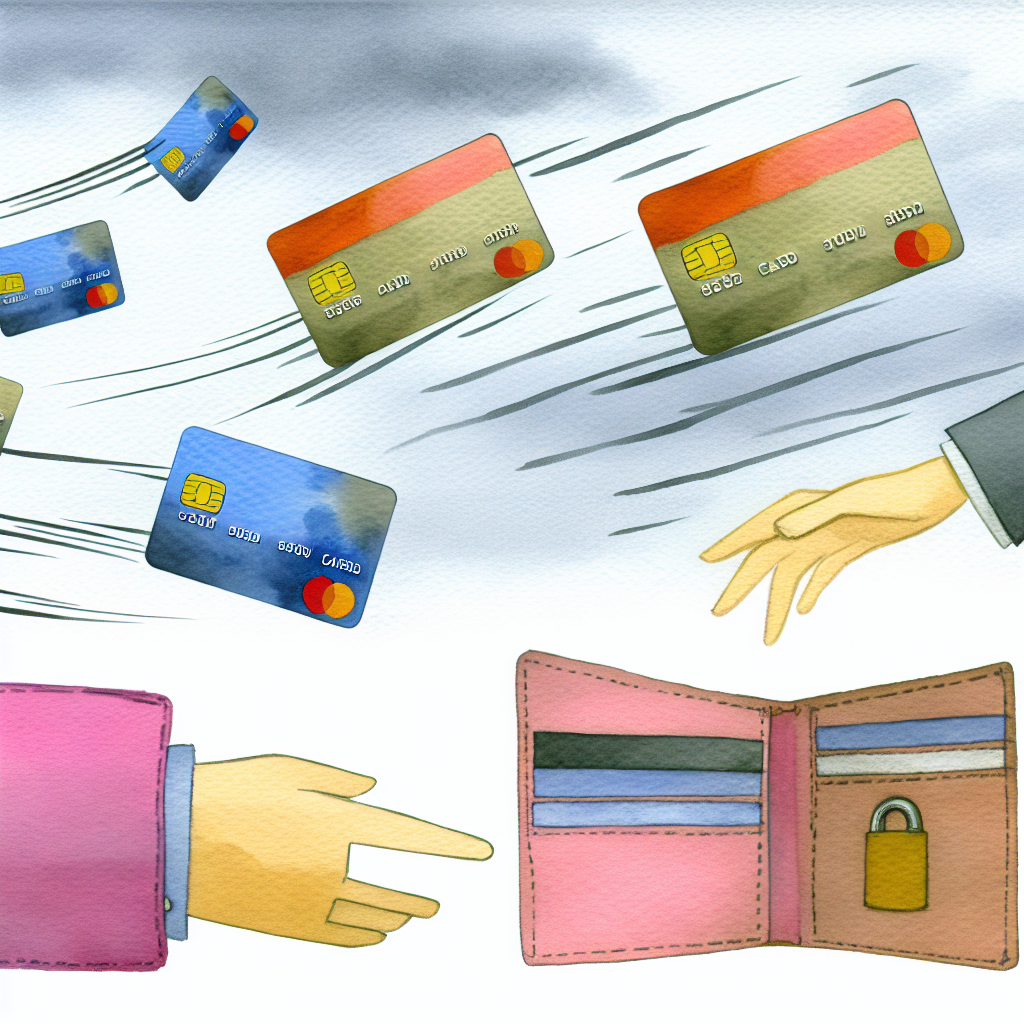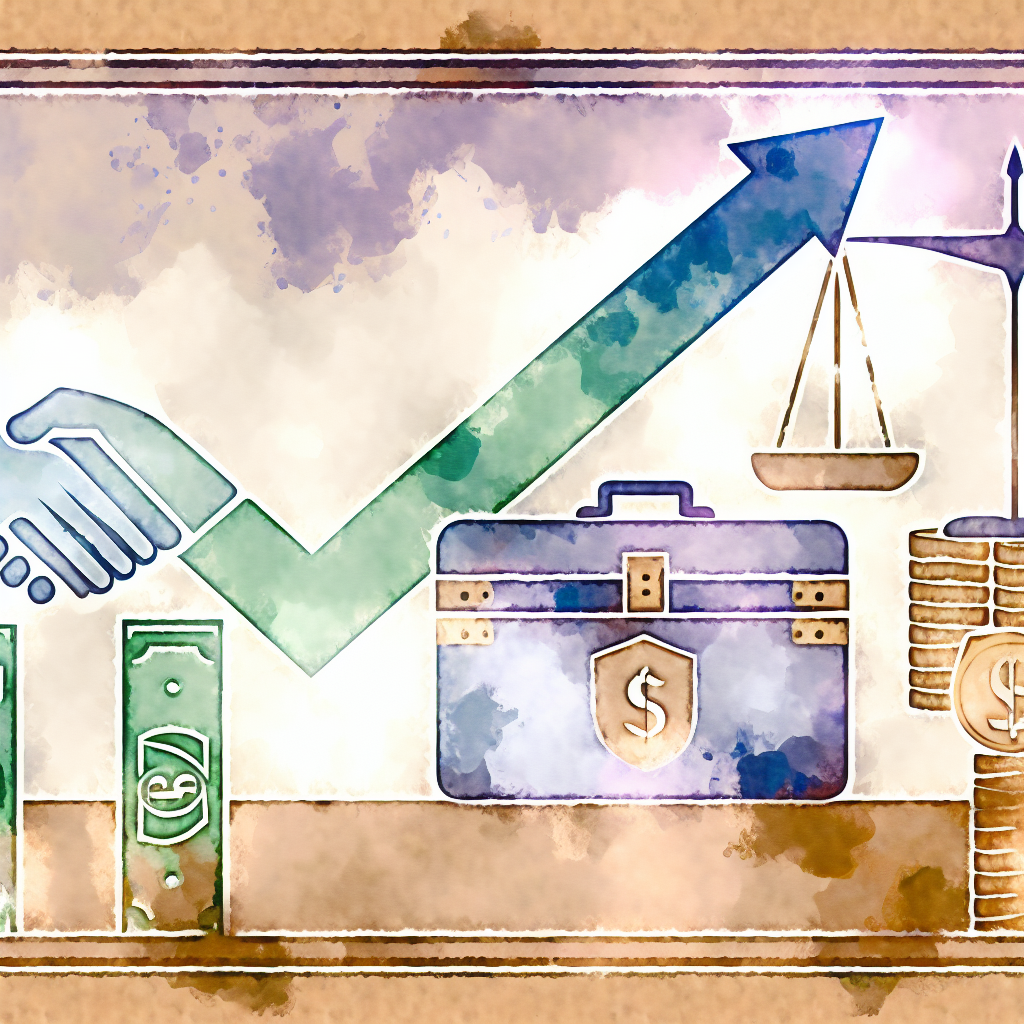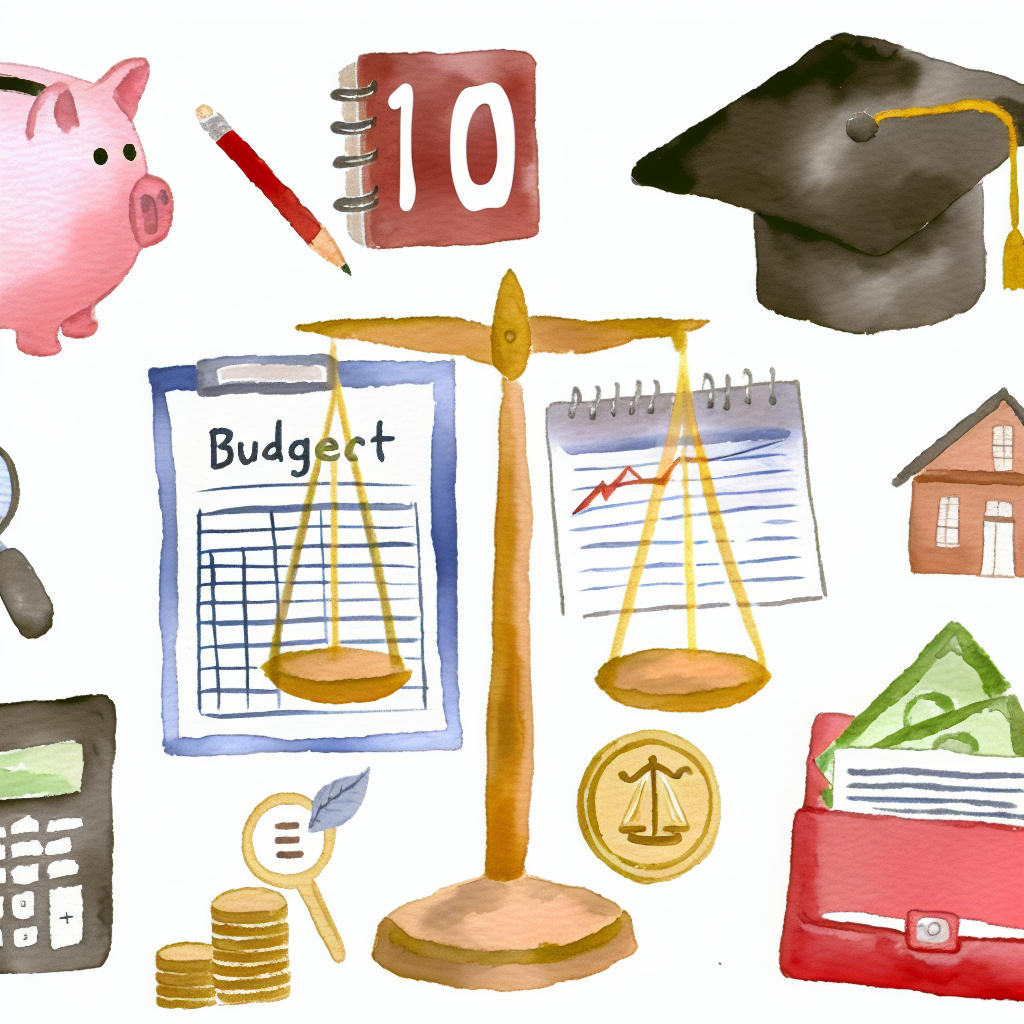Introduction: Understanding the Temptation of Cash Advances
In the modern world of instant gratification, the allure of quick cash is ever-present. Financial emergencies, unexpected bills, or the need for discretionary spending can all lead an individual to consider the quickest way to get money – often through cash advances from credit cards. The convenience of withdrawing cash from an ATM using your credit card is tempting, especially when you’re in a bind. However, it’s imperative to understand the long-term repercussions this can have on your finances.
The temptation of withdrawing cash advances from credit cards hinges on the immediacy and ease they offer. It’s as simple as swiping your card and withdrawing money, no questions asked. This can feel like a lifesaver during unforeseen financial crisis. However, the harsh reality is that these advances come with steep fees and exorbitant interest rates, making them a costly financial decision in the long run.
Despite the appeal, understanding why cash advances are risky and recognizing your triggers for wanting to take one can empower you to make better financial decisions. Establishing a comprehensive budget and exploring alternative ways to secure emergency funds can help mitigate these temptations and ensure you maintain a stable financial footing.
As we delve deeper into this topic, we will explore not only the perils of cash advances but also effective strategies for responsible credit card use, healthier financial habits, and recovery strategies if you’ve ever succumbed to the temptation. By the end of this article, you will be equipped with knowledge and tools to better navigate your financial journey and avoid the pitfall of cash advances.
Why Cash Advances are Risky: High Fees and Interest Rates
One of the biggest pitfalls of cash advances is the high fees associated with them. Unlike regular credit card transactions, which may be subject to a grace period, cash advances start accruing interest from the moment you withdraw the funds. The associated fees can be as high as 3% to 5% of the cash advance amount or a flat fee, whichever is higher. This means withdrawing $300 could end up costing you an additional $15 straight away.
Interest rates on cash advances are another lurking danger. Typically, cash advance interest rates are significantly higher than those for regular credit card purchases. While standard purchase APRs might hover around 15% to 20%, cash advance rates can skyrocket to 25% or even higher. This means that even if you repay the balance quickly, the interest accumulated during that short period can constitute a substantial financial burden.
Beyond fees and interest rates, another risk of cash advances is the potential negative impact on your credit score. Cash advances increase your overall credit utilization ratio, which can lower your credit score if not managed carefully. Additionally, high outstanding balances resulting from cash advances can make you appear as a higher risk to future lenders, potentially affecting your ability to secure loans or new lines of credit with favorable terms.
Overall, the high fees and interest rates associated with cash advances make them a risky financial move. Being aware of the dire financial consequences they entail can help you make more informed decisions and avoid the temptation when you’re in need of quick cash.
Recognizing the Triggers: When and Why You Might Feel Tempted
Understanding why you might feel tempted to take a cash advance is crucial in avoiding the trap. Financial emergencies are the most obvious trigger. Sudden medical expenses, car repairs, or unexpected bills can put immense stress on your finances, making the quick and easy cash from a credit card advance appear as an immediate solution.
Another common trigger is a lack of financial planning or budgeting. When you don’t have a clear picture of your monthly expenses and income, it’s easy to mismanage finances and find yourself in need of quick cash. The feeling of being temporarily strapped for cash can prompt you to consider a cash advance as a quick fix, ignoring the long-term financial strain it may cause.
Retail therapy and impulsive spending can also lead individuals towards cash advances. The allure of instant gratification, coupled with a lack of immediate funds, can make the option of a cash advance highly tempting. Whether it’s a special sale, a limited-time offer, or simply a shopping spree, the urge to spend beyond your means can drive you to seek quick cash solutions without considering the long-term consequences.
Recognizing these triggers allows you to take proactive steps towards managing them. By identifying the situations or behaviors that lead you to consider a cash advance, you can employ strategies to avoid them or find healthier financial alternatives.
Create a Budget: The Role of Financial Planning in Avoiding Temptation
Creating a budget is one of the most effective strategies to avoid the temptation of withdrawing cash advances. A well-planned budget helps you understand your financial situation better, ensuring that you live within your means and set aside funds for emergencies.
Start by listing all your income sources and monthly expenses. Categorize your expenses into fixed (rent, utilities, loan payments) and variable (groceries, entertainment, dining out). Once you have a clear view of your spending patterns, allocate a specific portion of your income towards savings and emergency funds. This financial allocation ensures that you are prepared for unexpected expenses without resorting to cash advances.
A balanced budget will not only help you meet your financial obligations but also empower you to save for future goals. Regularly reviewing and adjusting your budget will help you stay on track, manage your expenses effectively, and avoid the need for cash advances. Budgeting tools and financial apps can assist in tracking your expenses and ensuring you adhere to your financial plan.
Additionally, setting financial goals can instill a sense of discipline and motivation. Whether it’s saving for a vacation, a new gadget, or a down payment on a house, having a clear goal can help you resist unnecessary spending and avoid falling into the trap of cash advances. Remember, a well-structured budget is a stepping stone towards financial stability and freedom.
Alternatives to Cash Advances: Other Sources of Emergency Funds
When facing financial emergencies, it’s important to explore alternatives to cash advances. Not only can these alternatives be more cost-effective, but they can also help you maintain better financial health.
Personal Loans
Personal loans can be a viable alternative to cash advances. They generally come with lower interest rates compared to cash advances and may offer more flexible repayment terms. Personal loans from banks, credit unions, or online lenders can provide the funds you need without the exorbitant fees associated with cash advances.
Borrowing from Friends or Family
While this option requires a level of trust and honesty, borrowing from friends or family can be a cost-effective way to manage emergencies. Unlike cash advances, there are usually no interest rates or fees involved, making this a less stressful financial solution. However, it’s crucial to have a clear agreement on repayment terms to avoid straining relationships.
Selling Unused Items
Assess your belongings for items you no longer need or use. Selling unused electronics, furniture, or clothing can provide a quick influx of cash without incurring the high costs associated with cash advances. Online platforms like eBay, Craigslist, or Facebook Marketplace can help you sell these items efficiently.
By exploring these alternatives, you can handle financial emergencies more effectively without compromising your long-term financial health. Being resourceful and considering various options can prevent the need for costly cash advances.
The Importance of an Emergency Fund: Building a Safety Net
An emergency fund is a crucial component of sound financial planning. It acts as a financial safety net, providing a buffer against unexpected expenses and reducing reliance on high-cost credit options like cash advances.
How Much to Save
A good rule of thumb is to save three to six months’ worth of living expenses in your emergency fund. This amount provides a cushion to cover basic needs like rent, utilities, groceries, and transportation in case of a job loss or significant unexpected expense. Start by setting aside a small portion of your income each month until you reach the desired amount.
Where to Keep Your Emergency Fund
Keep your emergency fund in a separate, easily accessible savings account. Avoid using this account for everyday expenses to ensure the funds are available when you need them the most. While some may opt for investments, it’s imperative that the emergency fund remains liquid and readily available.
Using the Fund Wisely
Utilize your emergency fund only for true emergencies – those unexpected and unavoidable expenses. Regularly review and replenish the fund to maintain its viability. Having a robust emergency fund not only provides financial security but also peace of mind, reducing the temptation to resort to cash advances during tough times.
Building and maintaining an emergency fund requires discipline and patience. However, the long-term benefits of financial security and the ability to handle unexpected expenses without stress make it a worthwhile investment in your financial future.
Using Financial Apps: Tools to Monitor and Control Your Spending
In today’s digital age, financial apps can be powerful tools to help you monitor and control your spending, thereby avoiding the need for cash advances. These apps offer a range of features designed to help you stay on top of your financial situation.
Budgeting Apps
Apps like Mint, YNAB (You Need A Budget), and PocketGuard allow you to create and manage budgets, track expenses, and set financial goals. They categorize your spending and provide visual insights into your financial habits, helping you identify areas where you can cut back and save more effectively.
Credit Monitoring Apps
Credit monitoring apps like Credit Karma and Experian provide insights into your credit score, report any unusual activity, and offer tips for improving your credit health. By keeping an eye on your credit, you can avoid pitfalls that could lead to the need for cash advances.
Savings Apps
Savings apps like Digit and Qapital automate savings by rounding up your purchases and transferring the spare change into a savings account. These micro-savings can accumulate over time, building a financial cushion that can help you manage emergencies without resorting to credit card cash advances.
Using these apps can provide you with greater control over your finances, helping you make informed decisions and avoid the costly consequences of cash advances. Integrating technology into your financial management routine can facilitate better spending habits and long-term financial well-being.
Seek Professional Advice: When to Consult a Financial Advisor
There are times when managing your finances on your own might not be sufficient. In such scenarios, consulting a financial advisor can provide invaluable guidance and expertise.
When to Seek Help
Consider seeking professional advice if you find yourself consistently struggling with debt, unable to manage your budget, or facing significant financial decisions like buying a house or planning for retirement. A financial advisor can offer a comprehensive analysis of your financial situation and help you develop a personalized plan.
Benefits of Financial Advisors
Financial advisors can provide a range of benefits, including investment advice, tax planning, retirement planning, and debt management. They can help you identify and achieve your financial goals, offering strategies to maximize your income and savings. By working with an advisor, you can develop a robust financial plan that minimizes the need for risky options like cash advances.
How to Choose a Financial Advisor
When choosing a financial advisor, look for credentialed professionals with a good track record. Check for certifications such as CFP (Certified Financial Planner) or CFA (Chartered Financial Analyst). Ensure that the advisor’s approach aligns with your financial goals and that they have a transparent fee structure.
Consulting a financial advisor can be a strategic move towards achieving financial stability and avoiding the pitfalls of cash advances. Their expertise can provide a pathway to better financial health and long-term success.
Positive Spending Habits: Tips for Responsible Credit Card Use
Developing positive spending habits is key to responsible credit card use and avoiding the temptation of cash advances. By adhering to these habits, you can maintain financial health and make the most of your credit card benefits.
Pay Your Balance in Full
Whenever possible, aim to pay your credit card balance in full each month. This practice not only helps you avoid interest charges but also keeps your credit utilization ratio low, positively impacting your credit score.
Avoid Impulsive Purchases
Impulsive buying can quickly lead to credit card debt. Practice mindful spending by evaluating the necessity of your purchases. Consider implementing a waiting period for non-essential items to determine if they are truly needed.
Utilize Rewards Wisely
Many credit cards offer reward programs such as cash back, travel points, or discounts. Use these rewards to your advantage but avoid overspending just to earn points. Ensure that the benefits outweigh any annual fees associated with the card.
Track Your Spending
Regularly monitor your credit card statements and track your spending. This practice helps you stay within your budget and identify any unauthorized transactions or discrepancies.
Set Spending Limits
Consider setting personal spending limits on your credit cards to prevent overspending. Many credit card issuers offer tools to set alerts when you approach or exceed your set thresholds.
By implementing these positive spending habits, you can enjoy the conveniences and benefits of credit cards while avoiding the notorious cash advance temptation. Responsible credit card use fosters financial discipline and contributes to long-term financial stability.
Learning from Mistakes: How to Recover if You Have Taken a Cash Advance
If you’ve taken a cash advance and find yourself facing the financial consequences, it’s important to take corrective steps to recover. Learning from the experience will help you avoid making similar mistakes in the future.
Assess the Situation
Start by assessing the total cost of the cash advance, including the principal amount, fees, and accrued interest. Understanding the full financial impact will help you formulate a repayment plan.
Create a Repayment Plan
Prioritize repaying the cash advance as quickly as possible to minimize interest charges. Allocate extra funds from your budget towards paying off the balance. Consider making more than the minimum payment to accelerate the repayment process.
Avoid Future Cash Advances
Reflect on why you took the cash advance in the first place and identify alternative solutions for future financial emergencies. Build an emergency fund and explore other sources of funding to avoid falling back into the cash advance trap.
Seek Advice and Support
If you find it challenging to manage the debt, consider seeking advice from a financial advisor or credit counseling service. They can provide personalized strategies and support to help you navigate your financial recovery.
Learning from past financial mistakes is integral to achieving long-term financial well-being. By taking proactive steps to recover from a cash advance, you can build a more secure financial future and avoid similar pitfalls going forward.
Conclusion: Long-Term Financial Health and Avoiding Future Temptations
Achieving long-term financial health requires a proactive approach to managing your finances and avoiding the temptation of cash advances. By understanding the risks associated with cash advances, recognizing your triggers, and implementing strategic financial planning, you can safeguard your financial future.
Embracing positive spending habits and utilizing financial tools can facilitate responsible credit card use, reducing the likelihood of needing cash advances. Building an emergency fund and exploring alternative funding options provide a safety net, ensuring that you are prepared for unexpected expenses without resorting to high-cost credit solutions.
Through ongoing education and, if necessary, professional advice, you can cultivate financial discipline and resilience. Learning from past mistakes and continually striving to improve your financial management skills will empower you to make better financial decisions and achieve long-term stability.
In the journey towards financial health, taking small, consistent steps can lead to significant progress. Stay committed to your financial goals, remain disciplined in your spending, and be proactive in managing your finances to avoid future temptations and secure a brighter financial future.
Recap
- Cash advances from credit cards are risky due to high fees and interest rates.
- Recognize triggers such as financial emergencies, lack of budgeting, and impulsive spending that lead to the temptation of cash advances.
- Creating a budget helps manage expenses and set aside emergency funds.
- Explore alternatives like personal loans, borrowing from friends or family, and selling unused items.
- Building and maintaining an emergency fund is crucial for financial security.
- Financial apps provide tools to monitor and control spending effectively.
- Consult a financial advisor for expert guidance when needed.
- Develop positive spending habits for responsible credit card use.
- Learn from past mistakes and take steps to recover if you’ve taken a cash advance.
- Achieving long-term financial health requires ongoing effort and disciplined financial management.
FAQ
1. What are the common fees associated with cash advances?
Cash advances typically incur fees including a transaction fee (usually 3-5% of the amount) and higher interest rates compared to regular credit card purchases.
2. Can financial apps really help in avoiding cash advances?
Yes, financial apps can help you monitor spending, create budgets, and set financial goals, helping you manage your finances more effectively and avoid the need for cash advances.
3. How much should I save in an emergency fund?
A good rule of thumb is to save three to six months’ worth of living expenses to cover unexpected emergencies.
4. Are personal loans a better alternative to cash advances?
Yes, personal loans often come with lower interest rates and more flexible repayment terms compared to cash advances, making them a better alternative for managing unexpected expenses.
5. How can I develop positive spending habits?
Developing positive spending habits involves paying your credit card balance in full, avoiding impulsive purchases, using rewards wisely, tracking spending, and setting spending limits.
6. What should I do if I’ve already taken a cash advance?
Assess the total cost, create a repayment plan to pay off the balance quickly, avoid future cash advances, and seek advice from a financial advisor if needed.
7. When should I consult a financial advisor?
Consider consulting a financial advisor if you struggle with debt, need help with budgeting, or are making significant financial decisions like buying a house or planning for retirement.
8. How do cash advances impact my credit score?
Cash advances can negatively impact your credit score by increasing your credit utilization ratio and leading to higher outstanding balances.











